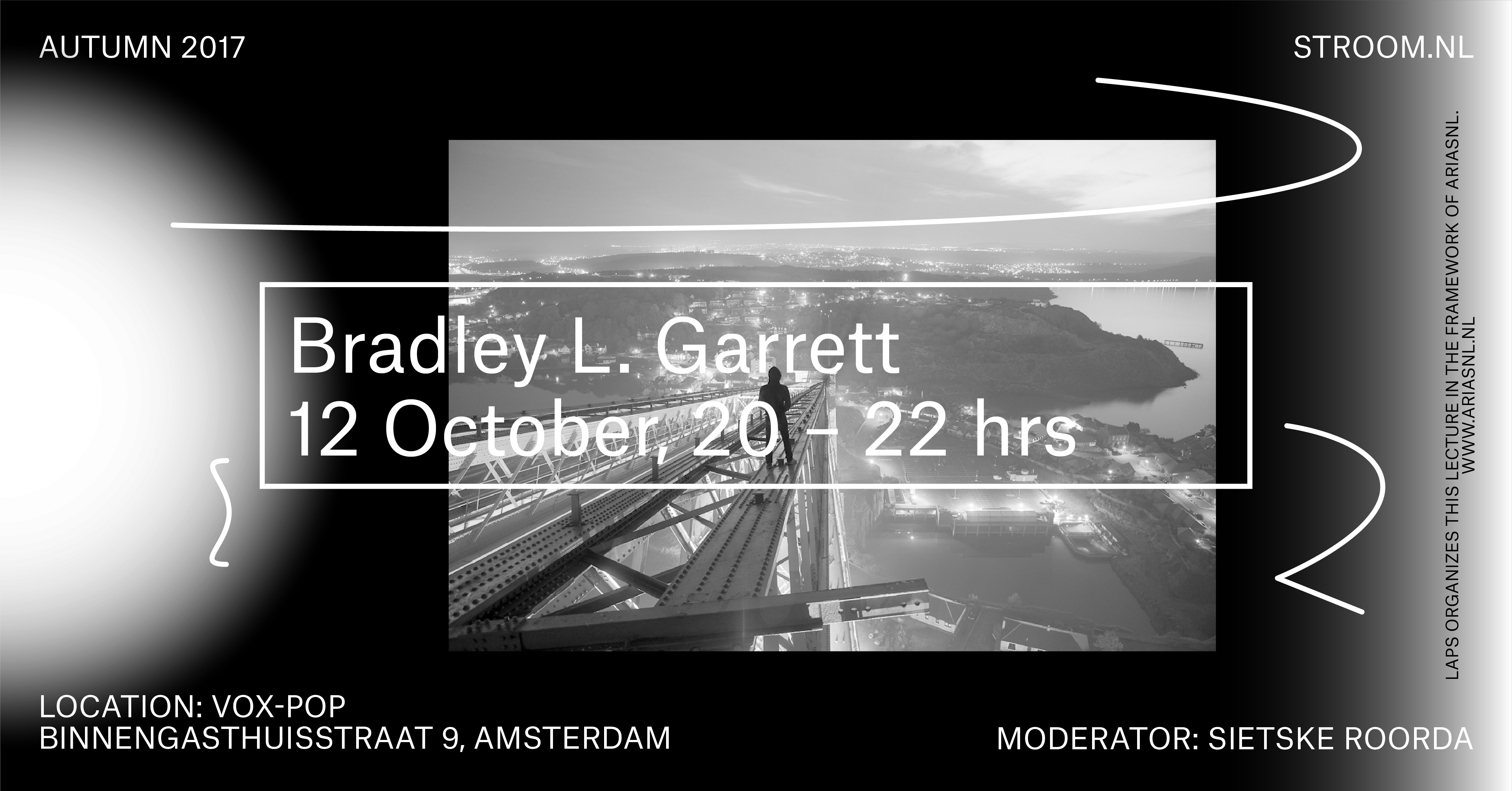
The evening of 12 October Bradley L. Garrett will talk about the rise of pseudo-public spaces or privately owned public spaces (POPS). Garrett shows the importance of public space as sanctuaries of equality precisely because they should be held in common rather than owned privately. The challenge is to define the limits of the ‘public city’ when the local seems to be continuing to give way to the global. Read more at the bottom of this page.
Thursday 12 October 2017, 20:00-22:00 hrs
Location: VOX-POP, Binnengasthuisstraat 9, Amsterdam
Language spoken: English
Moderator: Sietske Roorda (LAPS)
Text by Bradley L. Garrett
“Public space is more than the space between buildings, it is also the space where we rest and relax, the space where we meet friends and family, and the space where we are assured – whoever we might be – that we have a place. Cities are filled with buildings that will deny you entry or cheerfully charge you for the privilege, but public spaces are where we should all feel welcome, regardless of our income, differences or desires. Public spaces are vital sanctuaries of equality precisely because no one can own them: they are held in common.
Yet, in the past few decades, many existing public spaces have been sold to corporations – turned into pseudo-public spaces often euphemistically described as ‘POPS’ – Privately Owned Public Space. Despite the promising sheen of ‘regeneration’ – often heralded by pop-up shops, hipster cafes and a budding arts scene – when the construction dust settles too often public spaces once maintained by civil bodies have been quietly passed into the hands of corporations. In these new ‘public realms’, our rights are severely curtailed by corporate land management policies and monitored by the swivelling eyes of dome cameras tracking our every transgression. Photography is banned. Loitering is banned. Protest is banned. The public realm becomes space fit only for consumption; all other activities are rendered subversive, deviant, out-of-control.
The challenge then for this Knight’s Move is to define the limits of the ‘public city’ when the local seems to be continuing to give way to the global. “
The Knight’s Move is organised by LAPS in collaboration with Stroom Den Haag.